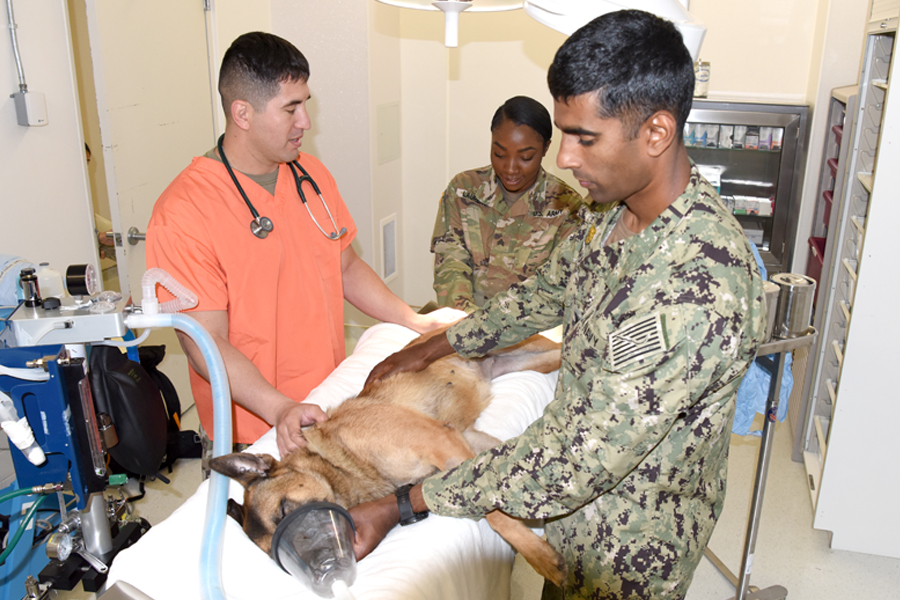At Joint Base Langley-Eustis in Virginia, the well-being of the military’s working dogs is a top priority for Army veterinarians.
Working dogs are a significant part of the security mission at the Hampton Roads area installation, which is comprised of Army and Air Force units. And just like their human handlers, dogs require regular checkups and medical attention when they are sick or injured.
“Our primary mission is to take care of the military working dogs and serve the community,” said Army Capt. Eric Dombou, the Fort Eustis veterinary services branch chief.
The Army is the only service with a Veterinary Corps, so soldiers provide support to working dogs throughout the armed services. All veterinarians are graduates of accredited civilian veterinary schools and maintain current and valid state veterinary licenses.
Dogs like those serving at the installation will receive recognition in August when the Postal Service releases Military Working Dogs, four stamps that honor the work of the canines who serve the nation’s armed forces.
The stamps show a Belgian Malinois, a Dutch shepherd, a German shepherd and a Labrador retriever — four breeds commonly used in today’s operations.
Joint Base Langley-Eustis doesn’t just provide preventative and emergency care to military working dogs.
“We also contribute to providing medical care and surgical services to service members’ pets,” said Pfc. Michaela Wilcox, the Langley Veterinary Clinic’s officer in charge.
Services offered include wellness visits, vaccinations, microchipping, heartworm prevention, and flea and tick prevention for pets of active duty, reserve component and retired service members.
“Providing support for animal care is to honorably serve the people in my community by being able to provide quality care to their pets,” Wilcox said. “Pets are valuable members of the service members’ family, and we serve to help maintain the health and welfare of our community.”
